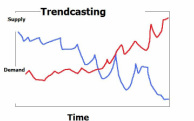As soon as the word monopoly is mentioned, a collateral word comes to mind, and that word is antitrust. The laws governing monopolies were formulated in the early 20th century to curb the dominance of big oil, steel, and telephone companies. It was clear that when any company had most of the market, they could control prices and limit competition. In the case of Google, it was unclear at first how antitrust laws could be enforced on a free, net neutral internet. But the law is concerned with any company whose business resides in the United States and threatens free and competitive commerce. So, the Senate Antitrust Committee began hearings yesterday to investigate Google and its position on the use of power and position. I watched most of the hearing on CSPAN and have come away with a great many serious questions.
The first sworn testimony began with Eric Schmidt, Chairman of Google. Unfortunately, it started off as a love fest for Google. Most of the senators began their remarks and questions with a dialog about how great it was for Google to be so successful and good at its search task. So much for hard hitting questions! And, when the questions were finally asked, Schmidt, as expected ducked and weaved his way out of an answer.. Like any politician, he learned how to dance before becoming and engineer. He couched his answers in vague generalities and a lot of leaning on the secret nature of the search engine. And when asked if the Google apps like Search, Maps,Gmail, and Places, etc. bundled in the Android and iPhone were at 100% he said "no, about 75%". Gee, that makes it all better.
But, the greatest problem that I saw, and see as a trend for subsequent investigations, was the use of the word proprietary. He leaned on this word several times suggesting that any real answers as to how Google works is in a protected secret and no one can get at the truth with the protection of intellectual property. I do believe that Congress will shakes some sticks and talk, but as to any protection for the consumer in the way of regulation or support for competitors this will not happen. And in an ironic twist, consumer apathy and the "follow the lemmings" behavior helps Google. What a tangled WEB we weave...

 RSS Feed
RSS Feed
